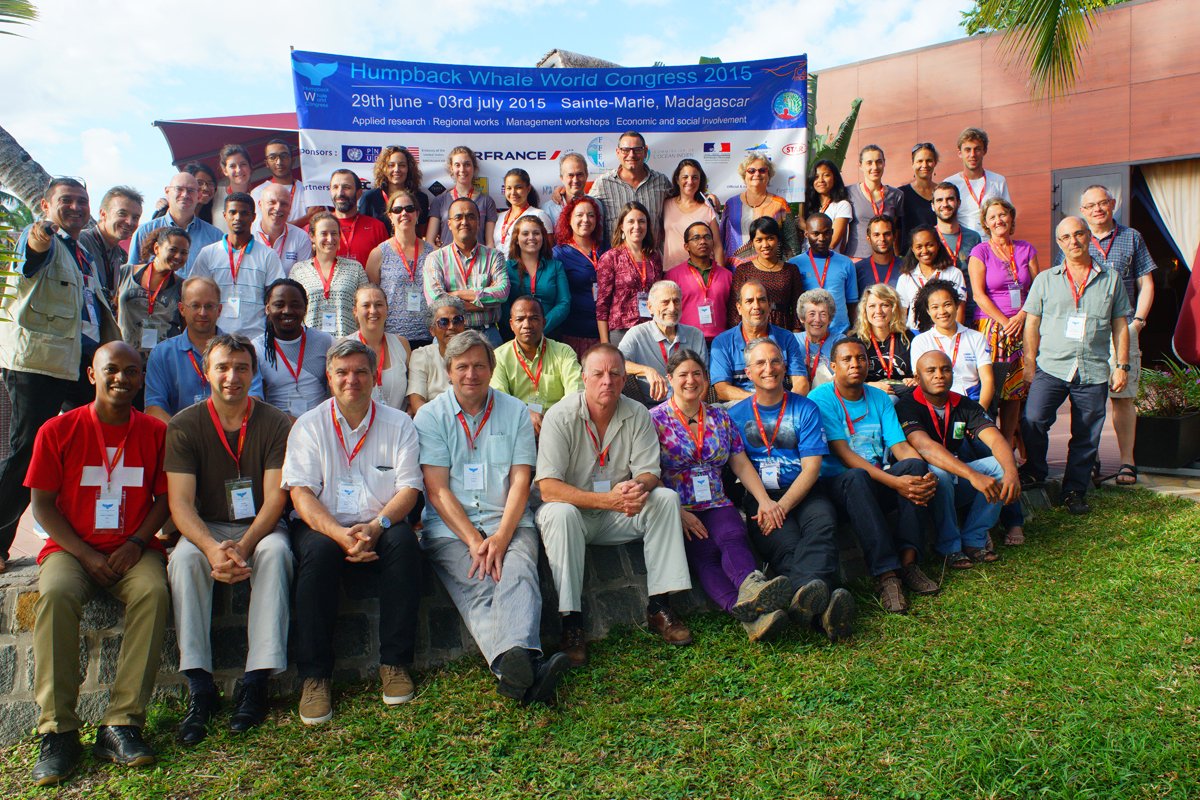
The first Humpback Whale World Congress
Sainte Marie Island, Madagascar
The inaugural Humpback Whale World Congress (HWWC), held over four days from June 29th to July 3rd, 2015, in Sainte-Marie, Madagascar, marked a pivotal moment in advancing the understanding and protection of these iconic cetaceans. Fully aligned with Madagascar’s national priorities, the event underscored the potential of the humpback whale as a catalyst for both biodiversity conservation and sustainable economic development.
An International Event
The 2015 HWWC brought together 71 participants from 16 different countries, featuring active engagement from the international scientific community. A significant number of students and researchers exchanged insights and experiences on the biology, behavior, and conservation of humpback whales.
Key Issues and Objectives
Central to the discussions was the topic of humpback whale mating and the vital role of song, explored in depth by Dr. Louis Herman. Advances in genetics, presented by Professor Per Palsbøll, shed light on the evolutionary history of these animals and facilitated the identification of different populations. Furthermore, Professor Joy Reidenberg’s research on respiratory anatomy and Eduardo Mercado’s work on auditory systems provided fresh perspectives on the physiological adaptations of humpback whales.
An Organizational Achievement
The success of the 2015 HWWC was the result of eight months of preparation and the dedication of a team of five organizers, including two full-time staff members, along with the support of around 20 volunteers. The event highlighted Madagascar's ability to host international scientific gatherings and unite marine conservation stakeholders around shared goals.





